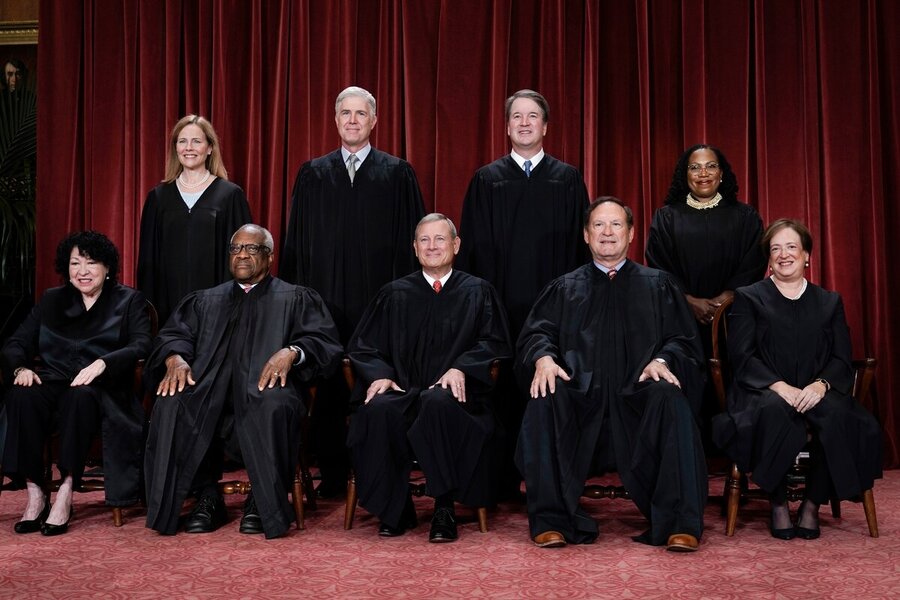The U.S. Supreme Court ruled unanimously on Dec. 10 that federal courts may not review the federal government’s decision to revoke an immigration visa.
The court’s 9–0 opinion in Bouarfa v. Mayorkas was written by Justice Ketanji Brown Jackson. The respondent is U.S. Department of Homeland Security (DHS) Secretary Alejandro Mayorkas.
In the case, the DHS revoked a Palestinian man’s visa after it found he previously attempted to pass off another one of his marriages as legitimate to obtain permanent resident status. Because the government determined he engaged in fraud before, the current marriage was deemed fraudulent, and his visa, which had been approved, was canceled.
The petitioner, Amina Bouarfa, a U.S. citizen, married noncitizen Ala’a Hamayel. They produced three children, all of whom are U.S. citizens, according to Bouarfa’s petition to the Supreme Court.
Around three years after they married, Bouarfa filed an immigration petition to classify her husband as an immediate relative, which would make him eligible for adjustment to permanent resident status.
In 2015, U.S. Citizenship and Immigration Services (USCIS), an agency of the DHS, approved the wife’s petition, but in 2017 it moved to revoke its approval, citing evidence Hamayel’s first marriage was fraudulent. The agency said if it had known of the sham marriage, it would not have granted the petition.
Bouarfa disputed the decision the same year and the Board of Immigration Appeals ruled against her in 2021, finding federal law barred approval of the petition.
In January 2022, Bouarfa sued in a federal district court in Florida, requesting a review of the board’s decision under the Administrative Procedure Act, which governs how government agencies create and enforce rules. The court dismissed the case, finding it lacked authority to hear it.
A panel of the U.S. Court of Appeals for the 11th Circuit affirmed, holding that federal law precludes judicial review of the revocation of a visa and that revocations are “discretionary—no matter the basis for revocation.”
In the Supreme Court’s ruling, Jackson wrote that the decision to revoke involved “a quintessential grant of discretion” to DHS that judges are unable to review.
Jackson wrote that the law provides that the DHS secretary “may, at any time, for what he deems to be good and sufficient cause, revoke the approval of any [visa] petition.”
Despite this, Bouarfa still has options, as the government acknowledges. “Nothing prohibits a citizen from filing another petition on behalf of the same relative,” the justice wrote, adding that nothing in the law requires the secretary to uphold the sham marriage determination.
In fact, Bouarfa has already re-filed and if her petition is turned down again because of the sham marriage finding, she may seek judicial review, Jackson added.
The Supreme Court affirmed the ruling of the 11th Circuit.
Share your thoughts by scrolling down to leave a comment.













